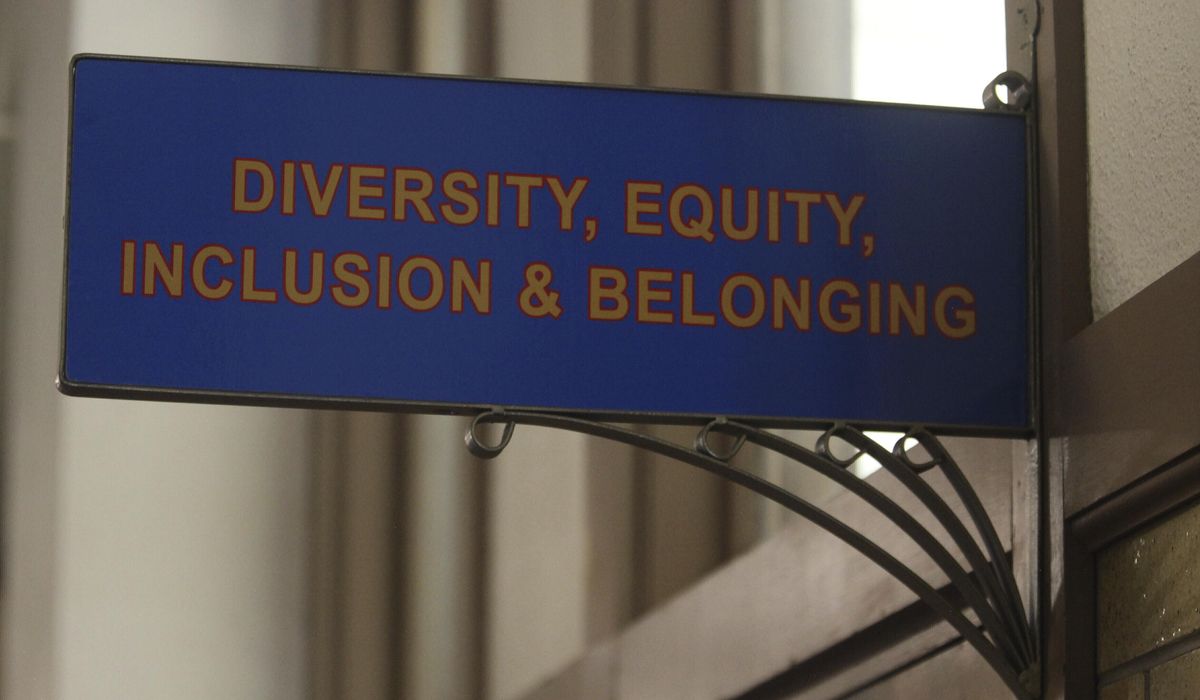


Recipients of federal funds wondering if their “BIPOC-only study lounges” will pass muster under the Trump administration now have an answer: not likely.
In a nine-page guidance, the Justice Department laid out “best practices” for educational institutions, states, local governments and other federally funded entities that define when diversity, equity and inclusion programs cross the line into unlawful racial discrimination.
“Entities receiving federal funds, like all other entities subject to federal antidiscrimination laws, must ensure that their programs and activities comply with federal law and do not discriminate on the basis of race, color, national origin, sex, religion, or other protected characteristics — no matter the program’s labels, objectives, or intentions,” said the document released Wednesday by the department.
The memorandum comes after federal judges temporarily blocked part of the Department of Education’s “Dear Colleague” letter to educational institutions barring racial discrimination, including some DEI programs.
Attorney General Pam Bondi said that the Trump administration “will not stand by while recipients of federal funds engage in illegal discrimination.”
“This guidance will ensure we are serving the American people and not ideological agendas,” Ms. Bondi said in a statement.
The memorandum ticked off obvious offenders like race-based admissions, scholarships, hiring, promotions, and lounges, as well as what the memo referred to as “unlawful proxies.”
Those include using “cultural competence,” “lived experience,” and “diversity statements” to grade job applicants, as well as recruiting from geographic areas and institutions “chosen primarily because of their racial or ethnic composition rather than other legitimate factors.”
Training programs and retreats that segregate based on race and other characteristics are also taboo, although there are exceptions, including specific contexts such as correctional institutions, “where courts have recognized compelling institutional interests.”
Another exception: sex-segregated sports and facilities. Allowing biological males to compete in female athletics and access opposite-sex restrooms and locker rooms constitutes a violation of Title IX, the federal law banning sex discrimination in education.
“To ensure compliance with federal law and to safeguard the rights of women and girls, organizations should affirm sex-based boundaries rooted in biological differences,” the memo said.
The guidance also delved into the content of diversity, equity and inclusion training programs, saying they may violate federal law if they “stereotype, exclude, or disadvantage individuals based on protected characteristics or create a hostile environment.”
The memo addressed to “all federal agencies” emphasized that the recommendations should be viewed as “non-binding suggestions to assist entities in avoiding legal pitfalls and upholding equal opportunity for all.”
“By prioritizing nondiscrimination, entities can mitigate the legal, financial, and reputational risks associated with unlawful DEI practices and fulfill their civil rights obligations,” the guidance said.
Even so, the guidance may face legal challenges, given the Department of Education’s experience with its Feb. 15 “Dear Colleague” banning the use of racial preferences in programs, hiring and policies, as well as its follow-up “Q&A.”
In April, a federal judge in Maryland partially blocked the “Dear Colleague,” finding that the department likely violated the Administrative Procedures Act by failing to give proper notice and provide opportunity for comment.
Another federal judge in the District of Columbia enjoined the department’s requirement for schools to certify their compliance with the “Dear Colleague” by April 24, finding that it failed to define sufficiently the conduct that would result in federal defunding.
• Valerie Richardson can be reached at vrichardson@washingtontimes.com.
